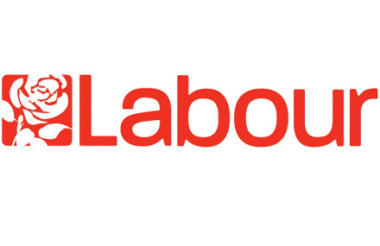I was lucky enough to be invited to one of my favourite voluntary sector events of the year on Tuesday night – NCVO’s annual Hinton Lecture. I’ve enjoyed Sayeeda Warsi and Baroness Onora O’Neill in particular in recent years, so Owen Jones was always going to be a bit different. When tasked with discussing “Corbyn's Labour, charities and volunteering: what should the left's approach look like?”, Jones didn’t disappoint. Or rather, he didn’t hold his punches which left some in the room either despondent or disappointed.
He set out very clearly shocking sets of data and analysis showing how, whilst being “one of the richest countries the world has ever seen”, the UK has increasingly high levels of poverty, inequality, and destitution with many not having enough money to put food on their tables. This data will be familiar to many in the sector. Many of us have not only worked to pick up the pieces of these heightened levels of poverty and inequality but have also campaigned against them and the austerity that has caused them for the past ten years.
But it seems our hard work and campaigning has not registered with Owen.
His commitment to tackle these injustices I am sure was shared by everyone in the room and across the sector, however his solution might not be. He suggested a total reinvention of the economic model based on socialist principles and stated that once all these injustices have been solved by a successful socialist state, charities will no longer need to exist.
One of the most powerful conversations I ever had was when I joined Crisis from my previous career in law. During my induction with Shaks Ghosh, the chief executive at the time, I asked for her vision. Her immediate response was that Crisis should no longer need to exist. Powerful stuff. Many of us believe there is no need for anyone to be homeless in a country as rich as ours, but do we really believe it is a vision that can happen simply through an enhanced role of the state?
It was exactly the right thing to do for NCVO to invite Owen to speak, and to begin the dialogue with one of the most respected commentators on the left about the role of the charity sector in developing and delivering a more equal and fairer society. It was a fascinating night of debate and discussion, and to his credit Owen stayed chatting with many of the guests for a good couple of hours after his speech.
But it made me feel that as a sector we need to engage much more with the leadership of the official opposition and its influential thinkers; to listen to their vision and offer our own ideas on the potentially powerful role of the sector moving forward. Many of us share the Labour Party’s ambitions for a much fairer society with less poverty and injustice, but we clearly need to be involved in many more discussions and debates in relation to our role in helping them to achieve and maintain kind of society we all want to achieve.
Role of the state
For example, although at least some of us would agree with Owen that there should be a larger role for the state in many areas, we also believe that in some areas charities can deliver better than the state ever can. We know from experience that a well-connected community organisation is far more likely to deliver better skills development and employment support within that community than any branch of the state; just as a self-organised, LGBTQ-led and staffed charity is more likely to deliver more innovative, flexible and appropriate support to members of its own community. That goes whether or not those services are a statutory or discretionary responsibility. One response to cuts to local authority funding over the last ten years has been for those local authorities to take back in-house services previously delivered by local community organisations, not always to the benefit of those communities.
The fact is that in many cases, local charities and community organisations are, and will continue to be, better connected to communities than any part of the statutory sector will ever be. That means, regardless of who the government is in future or what they provide it will be independent voluntary organisations that identify change needed and campaign to ensure it happens, whether in relation to housing rights or environmental protection, equality issues or access to justice.
Any government needs to recognise sector's role
Finally, we need for people on the left to recognise that, although with a different driver to socialist collectivism and solidarity, the coming together of people from geographic communities or communities of interest to pursue common public benefit causes is a good thing in its own right. Just as Jones knows and understands the power of grass roots political movements, we know the power of cause motivated charity volunteers and supporters, committing huge amounts of time, money and energy to the public benefit causes they care about.
Similarly, just as many of us would welcome a fairer and more progressive tax regime, we should also embrace personal philanthropy as well. We all know the joy that it brings to voluntarily give time or money, or both, to causes we care about. We should embrace this philanthropy, and, whilst acknowledging its limitations, perhaps work with government and others more closely to encourage that philanthropy towards the causes we think are most important.
I am very glad we started the dialogue on Tuesday night. Charities and community organisations are a vital part of how society works together to meet its aims and achieve change. Any government, whether left or right, needs to recognise that role, and work with those organisations to build the better world we all want.
Peter Lewis is chief executive of the Institute of Fundraising
|
Related articles












